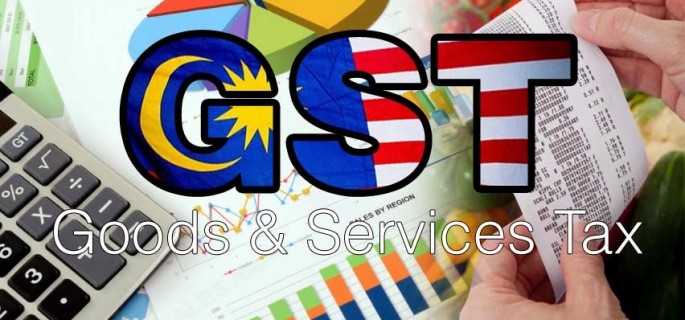Step-by-Step Refine for Singapore GST Registration Explained
Step-by-Step Refine for Singapore GST Registration Explained
Blog Article
Navigating the Complexities of GST Enrollment: Expert Tips and Best Practices for Smoother Compliance
From deciphering enrollment demands to using technical devices for streamlined processes, the journey in the direction of smoother GST compliance is complex and nuanced. Keep tuned to discover essential strategies and insights that can help services steer via the intricacies of GST registration with skill and confidence.
Comprehending GST Registration Demands

In enhancement to turnover limits, services participating in interstate sales or supplying taxed solutions might likewise be needed to register for GST, even if their turnover is listed below the recommended limit (Singapore GST Registration). Understanding these limits and requirements is vital to prevent charges and ensure smooth operations within the legal structure
Furthermore, companies should gather and prepare the essential documentation, such as evidence of identity, address, service unification, and checking account information, prior to starting the GST registration process. Failing to provide precise information or fulfill the enrollment target dates can result in fines or other lawful effects. Services should remain notified regarding the certain GST enrollment needs suitable to their operations to maintain compliance and prevent prospective concerns.
Organizing Essential Paperwork
Businesses beginning on the GST enrollment procedure should meticulously put together and arrange the essential documents needed for entry. The vital files typically needed for GST registration consist of evidence of company registration or address, identification and incorporation evidence of the business proprietors or companions, checking account information, evidence of principal workplace, and permission types. Guaranteeing that these papers are easily available and arranged can improve the enrollment process and prevent denials or hold-ups.
To properly arrange essential documentation, companies should develop a centralized system for saving and categorizing the required documentation (Singapore GST Registration). Making use of digital storage space solutions can help maintain very easy access and ensure that documents are safely stored. In addition, establishing a checklist of all necessary papers can function as a practical device to track what has actually been gathered and what is still needed for submission

Leveraging Technology for Effectiveness
Enhancing operational effectiveness through technical combination is vital for modern companies navigating the intricacies of GST registration. One of the essential means innovation can assist in GST enrollment next page is through the use of automated software application services.
Additionally, innovation can facilitate seamless interaction with tax authorities. Online websites and communication tools allow organizations to send documents, solve questions, and receive updates in a more effective way. This not only accelerates the enrollment process however also assists in preserving clear and trustworthy interaction with the relevant authorities.
In addition, cloud-based storage options give a protected system for businesses to shop and gain access to their economic data, ensuring compliance with GST record-keeping requirements. By centralizing information storage and automating processes, companies can enhance their total effectiveness and accuracy in GST registration procedures.
Proactive Conformity Surveillance

To make sure effective positive conformity surveillance, organizations need to develop robust interior controls, conduct periodic audits, and leverage automation tools for real-time tracking of GST transactions. Regular training sessions for staff members on GST conformity demands can likewise assist in creating a society of compliance within the organization. Additionally, engaging with tax experts or specialists can provide beneficial insights and guidance on additional reading navigating intricate GST regulations.
Engaging With Professional Consultants
Involving skilled tax consultants can significantly strengthen a company's understanding and conformity with detailed GST policies. Expert consultants bring a riches of expertise and experience to the table, assisting companies navigate the complexities of GST enrollment effortlessly. By leveraging their expertise, business can ensure exact filings, lessen the threat of errors, and remain current with the latest regulatory changes.
When engaging with professional specialists, it is important to pick experts with a solid record in GST conformity (Singapore GST Registration). Search for professionals that have a deep understanding of the pertinent regulations and policies, as well as experience collaborating with services in your industry. Reliable interaction is type in this collaboration, so make certain to plainly specify your assumptions and develop regular touchpoints to review development and attend to any concerns
Furthermore, expert consultants can provide valuable insights and recommendations on maximizing your tax obligation strategy, recognizing potential cost-saving chances, and enhancing your conformity processes. Generally, purchasing specialist consultancy solutions can go a lengthy method in ensuring smoother GST conformity and staying clear of pricey errors.
Final Thought
In conclusion, browsing the complexities of GST registration requires a comprehensive understanding of the requirements, company of essential documentation, leveraging technology for efficiency, positive conformity tracking, and engagement with specialist specialists. By following these ideal techniques, services can make sure smoother compliance with GST regulations and stay clear of potential fines or penalties. It is important to stay educated, positive, and diligent in managing GST enrollment to preserve conformity and maintain economic stability.
To make sure compliance with tax obligation regulations, organizations need to completely recognize the intricate demands for GST enrollment. Goods and Solutions Tax Obligation (GST) is a value-added tax obligation levied on most goods and services in a nation, making it important for companies to register dig this for GST to prevent lawful effects.Additionally, businesses have to collect and prepare the necessary paperwork, such as evidence of identification, address, service incorporation, and bank account information, before starting the GST registration process. Services must remain notified about the particular GST enrollment needs relevant to their procedures to maintain compliance and prevent potential concerns.
The vital records generally required for GST registration consist of evidence of service enrollment or address, identity and incorporation proofs of the service owners or companions, financial institution account information, evidence of primary place of company, and authorization forms.
Report this page